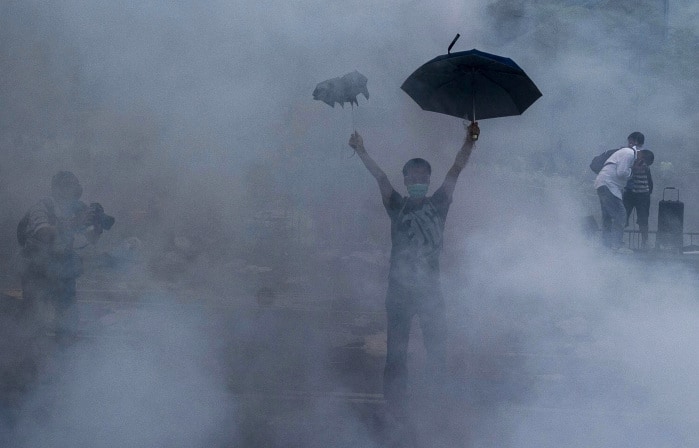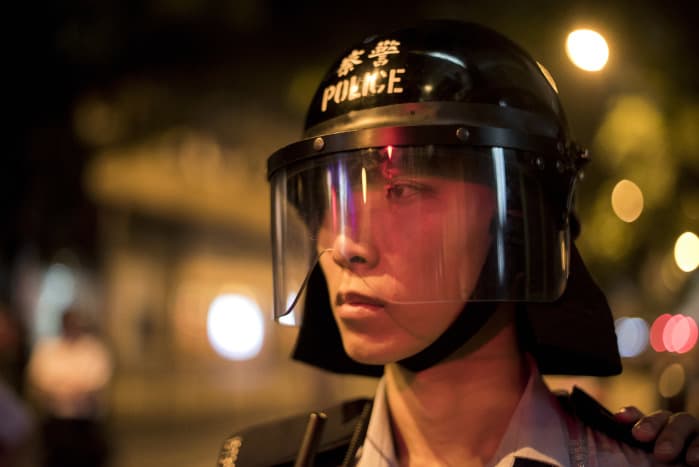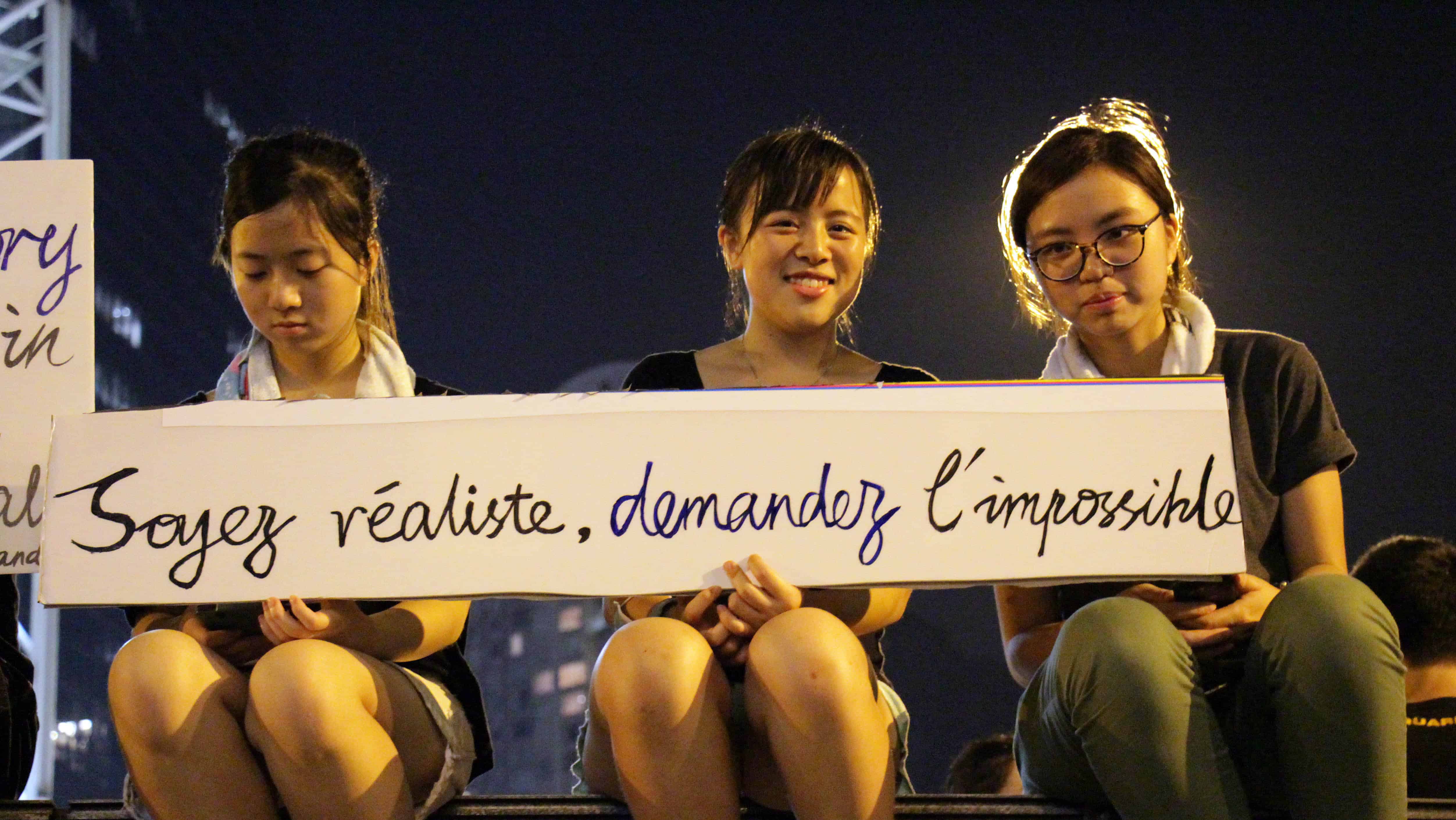The protests taking place in the heart of Hong Kong, Asia’s most prominent financial center, present what some commentators consider the biggest challenge to Beijing since the 1989 Tiananmen protests. For two consecutive nights, protesters have massed in some of the city’s busiest areas and refused to budge despite police firing multiple rounds of tear gas to disperse the crowds.
The immediate impetus for the demonstrations is new measures proposed by China’s authorities that would limit who Hong Kongers can elect in 2017 elections. But the political earthquake shaking the former British colony is centered on a far deeper fault line: the struggle for freedom and democracy in China and the ability for Beijing’s authoritarian rulers to cope with the aspirations of 7 million Hong Kongers. Here’s what you need to know.
What is the relationship between Hong Kong and China?
Hong Kong, which comprises a number of islands and a coastal strip east of southern China’s Pearl River Delta, was a British colony for more than a century and a half before a negotiated deal between London and Beijing handed the territory over to China in 1997. It became a “Special Administrative Region” (SAR) of China under a unique set of conditions, dubbed “one country, two systems”: Hong Kongers were granted a range of freedoms far greater than what is allowed on the Chinese mainland. The city maintains its own immigration and customs policy, its own police force, courts and laws, modeled in part on what existed in colonial times. The British also extracted a somewhat nebulous guarantee from the Chinese that Hong Kong would be permitted a “high degree of autonomy” for 50 years after its return to China.
Despite the fears of many doom-mongers, Hong Kong after 1997 remained much the same as Hong Kong before the handover. It was administered by China but with a long leash: Hong Kongers commemorate the June 4 anniversary of the Tiananmen protests every year with mass vigils and marches. Freedom of press and assembly has been preserved, and the city still gets top marks in the region for its rule of law and protection of human rights. Hong Kong has something of a democratic political system, with myriad political parties taking up seats in a legislative assembly that, while beholden to Beijing’s interests, is not wholly cowed by them.
But in recent years, Hong Kongers have grown increasingly concerned with China’s long shadow and fear that Beijing will steadily undermine the SAR’s unique freedoms and dismantle the “one country, two systems” model. Recent protests have highlighted attacks on Hong Kong’s freedom of speech as well as the growing influx and influence of mainlanders in the territory. Hong Kongers, many of whom are first- or second-generation descendants of Chinese who fled Communist rule, see themselves in some respects as a people apart from the rest of China. It all came to a head earlier this month when Beijing announced that Hong Kong’s next leader, known as the chief executive, would come only from a slate of candidates vetted by Chinese authorities ahead of planned elections in 2017.

Who are the protesters?
The protests have involved a convergence of various movements: the organizers who launched #OccupyCentral, Hong Kong’s (in many ways more successful) equivalent of the U.S. Occupy Wall Street movement, which was directed as much at the city’s own business elites as it was at Beijing; Hong Kong’s traditional pro-democracy groups, including many that are active during annual June 4 protests; and a huge outpouring of university and high school students, galvanized by the arrest on Friday of a 17-year-old student leader.
They are calling for the resignation of Hong Kong’s current chief executive, Leung Chun-ying, considered by critics to be a Beijing proxy, and want to see free, direct elections allowed in the territory. They say they plan to press these demands through peaceful civil disobedience. The protests have been marked by propriety and peacefulness, with activists recycling trash in the middle of demonstrations and school kids dutifully doing their homework while conducting a sit-in.
How is Beijing reacting to this?
Awkwardly. China’s state media censored news of the protests, while authorities also blocked access to social media sites such as Instagram, on which Hong Kong protest hashtags were trending. They also condemned the “unlawful occupation actions” taking place in Hong Kong and suggested a foreign hand was guiding radicals mobilizing in the streets. Leung has branded the protests “illegal” and urged Hong Kongers to engage in “rational” dialogue with their local government.

What will happen next?
The protests appear to be growing. Wednesday and Thursday mark a national holiday in China, and many expect what takes place on those days to define the current unrest. If the sit-ins and demonstrations continue with the intensity they’ve already shown, there’s a chance that local security forces could crack down more violently than they have so far, including perhaps using rubber bullets. That sort of violent response could be a disaster for Hong Kong’s government, which would face mounting pressure from the territory’s voluble civil society and media.
For China’s rulers, the choices seem more clear. They’ve already signaled their lack of interest in allowing a true democracy to flourish in Hong Kong. State media in the past have pointed to the arrogance and “racism” of Hong Kong’s anti-Chinese activists; an influential Chinese commentator notoriously labeled Hong Kongers “dogs of British imperialists.” China is unlikely to allow the protesters to win many concessions.
For many years now, optimists have seen Hong Kong’s present as China’s future. Just as its capitalistic dynamism helped incubate economic transformations that spread from nearby south China through the rest of the mainland, Hong Kong’s more open political system was supposed to be a guide for a liberalizing China. The current unrest will test whether that narrative has any truth — or if the former British colony will remain a thorny exception to a Chinese leadership wholly bent on consolidating its grip on power.
© 2014, The Washington Post






